Current News
/ArcaMax
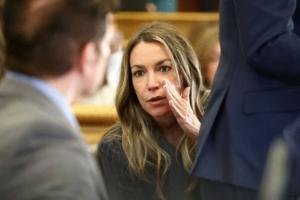
Karen Read retrial hits Day 9 with the fateful night in question
DEDHAM, Mass. — The Canton Fire Department paramedic who initially reported hearing Karen Read say “I hit him” while nearby John O’Keefe, dead or dying on a front lawn, took the stand on the ninth day of trial.
Read, 45, of Mansfield, faces charges including second-degree murder in the death of O’Keefe, a Boston police officer and her...Read more
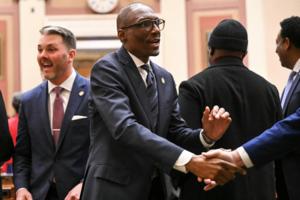
Ethics panel deadlocks on complaint against Minnesota Senate president
MINNEAPOLIS — An ethics complaint Republicans filed against Minnesota Senate President Bobby Joe Champion, DFL-Minneapolis, stalled Monday after a legislative ethics panel failed to reach consensus on how to proceed.
The two Democratic-Farmer-Labor and two Republican members of the Senate Subcommittee on Ethics deadlocked on whether there was...Read more
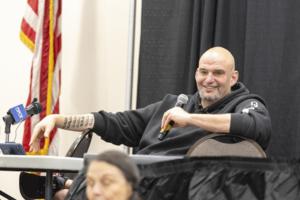
A viral video shows Sen. John Fetterman getting into an argument with airplane crew on flight to Pittsburgh
Video from earlier this year shows Sen. John Fetterman getting in an argument with an airline crew over the proper way to wear his seatbelt on a flight to Pittsburgh.
The video went viral after New York Magazine’s profile of Pennsylvania’s Democratic senator and his mental well-being, per staffers, last week in which the tense moment is ...Read more
Green fireball spotted over western skies. 'Never seen anything quite like this'
Hundreds of people reported seeing a fireball over several western U.S. states, especially over Utah, where it was exceptionally large, bright and green.
Reports poured into the American Meteor Society from Utah, Idaho, Wyoming, Montana, Colorado, and even Alberta, Canada, on Saturday, May 3 and into Sunday, May 4.
Videos attached to the May ...Read more
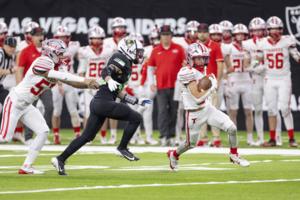
NIAA loses 2 California high schools because of new transgender policy
Two California high schools are dropping out of the Nevada Interscholastic Activities Association, citing the NIAA’s new policy on transgender athletes.
Northern schools Truckee and North Tahoe announced Friday they will leave the NIAA after the school year and join the California Interscholastic Federation beginning in the 2025-26 school ...Read more

3 dead after suspected smuggling boat capsizes off Del Mar in San Diego County
SAN DIEGO — A search was underway early Monday after a suspected smuggling boat capsized off Del Mar, killing three people.
Early reports indicated nine people were missing from the boat, while four survivors were located.
“Potentially nine more individuals are unaccounted for,” said Coast Guard spokesperson Adam Stanton. “That nine ...Read more
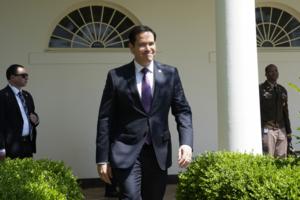
Analysis: Secretary Rubio defies Sen. Rubio by declaring foreign policy 'belongs' to Trump
WASHINGTON — Secretary of State Marco Rubio’s declaration last week that foreign policy “belongs” solely to the Executive Office of the President is undermined by the statements and legislation of a certain former senator: Marco Rubio of Florida.
Rubio’s comment about flouting a federal judge’s order was merely the latest plank on a...Read more
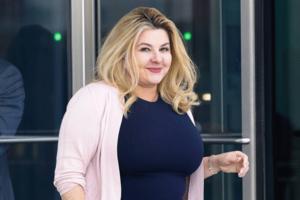
Trump has pardoned Michele Fiore. Authorities may still keep her from being a judge
The Nevada Commission on Judicial Discipline may continue to suspend Michele Fiore from her position as a Pahrump judge despite her presidential pardon, records show.
Fiore was found guilty of conspiracy and wire fraud charges by a federal jury in October, but President Donald Trump granted her a “full and unconditional pardon” last month, ...Read more
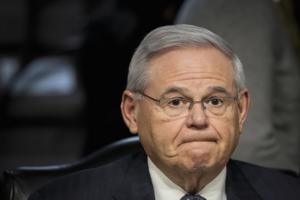
NJ attorney general wants Bob Menendez barred from office for life
The New Jersey Attorney General’s Office asked a state judge on Monday to declare that former U.S. Sen. Bob Menendez is barred for life from seeking public office following his bribery conviction.
Menendez was sentenced in January to 11 years in prison for taking illegal gifts and advancing the Egyptian government’s interests. Following his...Read more

NYC Mayor Eric Adams appeals order blocking ICE from setting up on Rikers Island jail
NEW YORK — Attorneys for Mayor Eric Adams are appealing a court decision that’s temporarily blocking his administration from taking any steps to let federal immigration authorities operate on Rikers Island.
In papers filed Monday with the appellate division of Manhattan Supreme Court, attorneys representing Adams, First Deputy Mayor Randy ...Read more

Newark radar failure left controllers blind for 90 seconds
WASHINGTON — Air traffic controllers guiding planes bound for Newark Liberty International Airport lost radar and radio communication for more than a minute early last week before flights at the key hub were snarled for days, according to people familiar with the matter.
The outage of those key systems occurred on April 28 and lasted nearly ...Read more
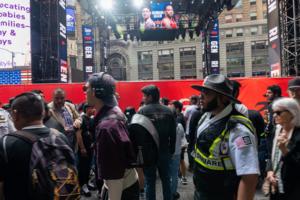
12-year-old migrant with Tren de Aragua ties busted in attack on NYPD cops in Times Square
NEW YORK — A 12-year-old migrant boy with Tren de Aragua ties was arrested in a Times Square attack on a pair of NYPD police officers who were protecting two other kids from being robbed, police sources said Monday.
The same boy made headlines last year when he was arrested at age 11 in connection with a string of Central Park robberies in ...Read more

Top LA Fire Department union officers suspended after audit flags $800,000 in credit card spending
LOS ANGELES — The president and two other top officers of the Los Angeles Fire Department's labor union were suspended from their posts Monday after an investigation by the union's parent organization found $800,000 in credit card purchases that were not properly accounted for.
The International Association of Fire Fighters, which oversees ...Read more

Trump administration offers undocumented immigrants $1,000 to leave the country
The Trump administration announced a plan Monday to try to ramp up the number of deportations: paying unauthorized immigrants $1,000 if they return to their home country voluntarily.
The Department of Homeland Security called the plan a “historic opportunity for illegal aliens,” noting in a news release that it would also pay for travel ...Read more

Bad Bunny announces world tour following sold-out residency in Puerto Rico
Bad Bunny fans, prepare your wallets and passports, because the Puerto Rican singer is embarking on his “Debí Tirar Más Fotos” world tour.
The Grammy-winning singer announced new shows Monday, via a short clip on Instagram that featured his animated concho frog exclaiming, “at last!” before shooting off his paper plane into the ether....Read more

Boston City Councilor Fernandes Anderson pleads guilty to federal corruption charges
BOSTON — Boston City Councilor Tania Fernandes Anderson pleaded guilty Monday to federal corruption charges tied to a $7,000 kickback scheme she carried out at City Hall and she is eyeing late June for her Council resignation to become effective.
Fernandes Anderson, 46, choked back tears as she formally pleaded guilty in federal court to two ...Read more
Ex-teacher who sexually assaulted middle school teens for drugs, agrees to 25-year sentence
A former substitute teacher accused of using a social media app to meet middle school girls as young as 12 and supplying them with vape pens and marijuana in exchange for sex, reached a plea agreement with the state Monday that includes a minimum 15-year prison sentence.
Enreeka Nalasco, 35, who worked as a substitute teacher at Miami Beach ...Read more

Boston City Councilor Fernandes Anderson pleads guilty to federal corruption charges
BOSTON — Boston City Councilor Tania Fernandes Anderson pleaded guilty Monday in federal court to two charges of corruption tied to a kickback scheme in which she took a cash handoff in a city hall bathroom.
Fernandes Anderson, 46, pleaded guilty to to one count of wire fraud and one count of theft involving public funds related to a scheme ...Read more

Trump administration offers $1,000 to immigrants who return home voluntarily
The Trump administration is offering $1,000 and a free flight home to undocumented immigrants who go back their own countries voluntarily, the Department of Homeland Security announced Monday.
The immigrants who use the CBP Home App — the same mobile platform previously used under the Biden administration to facilitate lawful entry ...Read more

Minnesota Supreme Court: Female breasts are not lewd or inherently sexual and can be exposed in public
MINNEAPOLIS — Police officers in Rochester were called to the Kwik Trip parking lot because Eloisa Plancarte had her shirt pulled up, revealing her breasts in July 2021.
Plancarte was known to officers; they had already charged her twice that week with indecent exposure, once for exposing her underwear, once for exposing her breasts and ...Read more
Popular Stories
- Asylum-seeking Honduran mother is still sitting in a Colo. ICE center six months after being detained
- AG Dana Nessel drops charges against group arrested in University of Michigan pro-Palestinian camps
- Trump restores Title X funding for two anti-abortion states -- while wiping it out elsewhere
- Colorado police shot someone every 6 days in 2024, data shows
- US Rep. Jan Schakowsky, Illinois congresswoman since 1999, announces she will not seek another term next year





